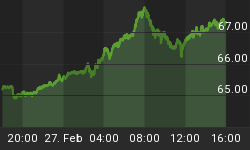The global economic situation is becoming more dire every day. Approximately half of all US banks have significant exposure to the debt crisis in Europe. Much more dangerous for the US taxpayer is the dollar's status as reserve currency for the world, and the US Federal Reserve's status as the lender of last resort. As we've learned in recent disclosures, this has not only benefitted companies like AIG, the auto industry and various US banks, but multiple foreign central banks as they have run into trouble. Nothing has been solved, however, by offering up the productivity of Americans as a sacrificial lamb. Greece is set to be the first domino to fall in the string of European economies at risk. Rather than learning from Greece's terrible example of an over-consuming public sector and drowning private sector, what is more likely from our politicians is an eventual bailout of European investors.
The US has a relatively small exposure to overwhelmed Greek banks, but much larger economies in Europe are set to follow and that will have serious implications for US banks. Greece is technically small enough to bail out. Italy is not. Germany is not. France is not. It is estimated that US banks have over a trillion dollars tied up in at-risk German and French banks. Because the urge to paper over the debt with more credit is so strong, the collapse of the Euro is imminent. Will the Fed be held responsible if the Euro brings the US dollar down with it?
The most disingenuous aspect of the narrative about the European sovereign debt crisis is that entire economies will collapse if more resources are not bilked from productive people around the world. This is untrue. Tough times are coming for the banks, to be sure, but free people always find a way back to prosperity if the politicians leave them alone. Communities within Greece are coming together and forming barter systems because they know the Euro is becoming unstable. Greeks are learning how to engage in commerce with each other, without the use of fiat currency controlled by central banks. In other words, they are rediscovering what money really is, and they are trading with each other in ways that cannot be controlled, manipulated, squandered, inflated away and generally ruined by corrupt bankers and the politicians that enable them. Farmers will still grow food, mechanics will still fix cars, people will still make things and exchange them with each other. No banker, no politician can stop that by destroying one medium of exchange. People will find or create another medium of exchange.
Unfortunately when politicians try to monopolize currency with legal tender laws, the people find it harder and harder to survive the inflation and taxation to which they are subjected. Bankers should take their dreaded haircut rather than making innocent people pay for their mistakes. The losses should be limited and liquidated, rather than perpetuated and rewarded. This is the only way we can recover.
Government debt is often considered rock solid because it is backed by a government's ability to forcibly extract interest payments out of the public. The public is increasingly unwilling to be bilked to make bankers whole. The riots and the violence in Greece should tell us something about the sustainability of this system.
If we continue to bail out banks and bankers so they can continue to lose money, if we cavalierly put this burden on the taxpayer, it is all too predictable what will happen here.















